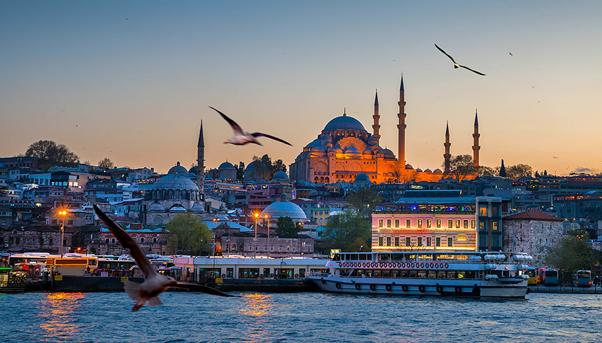
«Let's reverse our policy for the Middle East from a position of fear to hope; let’s build together a better future for the Arab countries.» The chief analyst and founder of the think tank Eurasia Group, Ian Bremmer, proposes intensifying the dialogue between East and West. Bremmer is concerned about the growing influence of extremism in parts of the Muslim world, but is even more worried about the inability of the European Union and its allies to show a unified front to fight the current crisis.
First to theorise the hazard of a world without leaders in his 2012 book “Every Nation by Itself”, Bremmer, as an expert in global risk, reiterates the importance of companies knowing how to stay competitive by being flexibile amid new conditions that present themselves in global markets, including instability, In this interview, “We Build Value” revisits this issue to explain the consequences that risk could have on our lives and to highlight how a greater ability to deal with risk can help companies to grow in global markets.
In the Eurasia Group’s yearly “Top Ten Risks” report on world stability, the focus in on the role of Europe. Why?
«We should worry about Europe because at the very moment when the US is reducing interest in the Middle East, the European community is at his lowest point of cohesion. The problem is not the Euro or Brexit, but rather the ability to keep the coalition together, while acting under a unified leadership. Europe is on the frontline of the battle with Isis: directly with the risk of terrorist attacks, and indirectly with the waves of refugees crossing its borders to find shelter. Without unity, the EU becomes very weak in the face of the new dynamics developing in the Middle East. This situation risks transforming itself into a perfect storm.»
Are you proposing a Marshall Plan for the Middle East?
«Indiscriminate aid does not help, but a strategy to accompany governments that are preparing to apply reforms would certainly work. If we do it well, we can kick-start a real revolution.»
How can this happen?
«A coalition of states can easily be built, assisted by a good number of multilateral institutions starting with the IMF and the World Bank to offer material help like engineering support, know-how, and badly needed infrastructure. A new growth process driven by local governments.»
What would be the right strategy?
«Now that the oil crisis is shrinking financial resources, local governments seem to have more troubles to provide opportunities for their people. This is why we have tens of millions of desperate men (mostly men) who are tempted to stream into terrorism, because they feel that they don’t have a chance of running productive lives, and don’t believe in a better future for their children. The best thing we can offer them is a promise of a better life, with a diversified economy.»

Who can supply this tutelage, now that the US has achieved virtual energy independence , and is pulling back from the area?
«I’ve expressed my pessimism about the future five years ago in my book “Every Nation for Itself”. A world without leadership is worse for the Middle East, because without the security and diplomatic support of the United States, nobody else is going to provide it. In addition, we have now new technology empowering people in a way that was never available before, and pushing them to show their restlessness. And what is more is that today we have oil at $35 barrel that’s causing the economy of the Middle Eastern states to degenerate much faster.»
Who has to step in to bring stability?
«Ultimately, most of the lifting will have to be from within the Arab world. It’s their responsibility to provide guidance to the community in their respective countries. The US is still the most active country when it comes to lending help, and we are not alone, as we have seen in the aftermath of Syrian crisis. Japan is second, and then Germany.»
Many European countries in recent years have seen the surging of populist forces in politics, just as we are now witnessing in the US elections…
«The surge of populism in the West has been easily managed so far, because none of the extremist parties have gained substantial power. In the Middle East the problems are much more acute, and the current regimes should recognize that if they don’t make quick changes they will not survive. The good news is that many are recognizing the problem; the bad news is that there is not much time left. My fear is that it could be already too late.»

